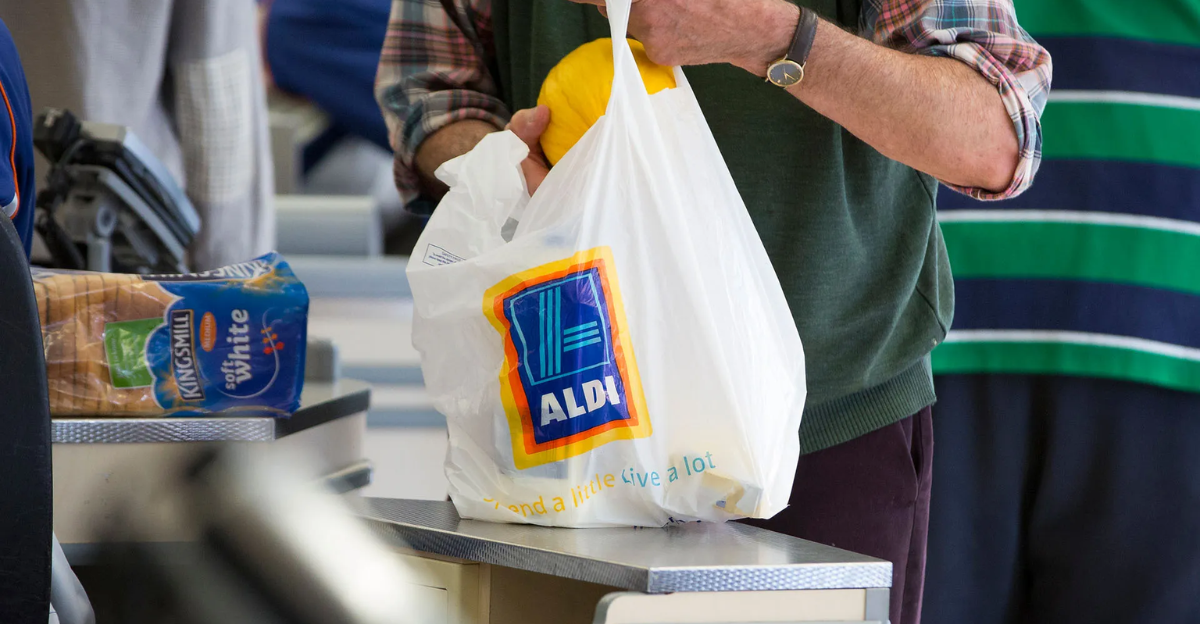
Aldi has issued a sweeping recall of five products across 37 states, warning customers to check their kitchens and dispose of certain foods. The chain pulled these items due to serious safety issues – metal fragments in food and undeclared allergens on labels.
Affected products include Casa Mamita Chicken & Cheese Taquitos and Park Street Deli Pork Carnitas (recalled over possible metal contamination), plus Atlantic Salmon with stuffing, Casa Mamita Churro Bites and Welby Vitamin B12 supplements (all found to contain hidden allergens).
Why the Recall Happened

This large recall stems from dangerous discoveries in Aldi’s supply chain. Federal food inspectors say a customer found metal pieces in a batch of Casa Mamita taquitos – one person even suffered a dental injury from biting into the product. At the same time, other Aldi items were pulled after testing revealed undeclared allergens (such as peanuts, soy and milk) in foods whose labels gave no warning.
Metal Fragments Found in Food

Even a tiny shard of metal can turn dinner dangerous, as one Aldi customer learned the hard way. After reports that someone chipped a tooth on a Casa Mamita Chicken & Cheese Taquito, nearly 25,000 pounds of the frozen taquitos were recalled from stores across about 30 states.
The USDA deemed this a high-priority hazard, given the potential for injury. And it wasn’t just taquitos: Aldi also pulled its Park Street Deli Pork Carnitas meal kits off shelves over similar fears that metal fragments from processing equipment might be in the food.
Hidden Allergens Trigger Alerts

For those with food allergies, the stakes are just as high. Three of the Aldi recalls were issued because products contained allergens that weren’t listed on the label – a dangerous oversight. An Atlantic salmon entrée had undeclared soy, a dessert churro bite was found to contain milk, and even a bottle of Welby Vitamin B12 pills turned out to include traces of peanut.
While no allergic illnesses have been reported from these items so far, experts warn that even a small hidden allergen can trigger a life-threatening reaction in a sensitive person.
Aldi’s Swift Response

The grocery chain’s handling of the crisis has been rapid and transparent. Aldi coordinated with its suppliers and federal regulators as soon as the safety issues emerged, yanking all five products from shelves and issuing public alerts to customers. In a statement, the company stressed that the recall is a precautionary step taken “to protect consumer health,” and vowed that “our top priority is the safety of you and your family”.
Aldi urged shoppers to stop using the affected items immediately and offered full refunds for returns – a clear sign that the retailer would rather err on the side of caution than risk anyone getting hurt.
Suppliers and Regulators Step In

This recall has involved a multi-level safety effort beyond Aldi itself. The manufacturers behind each product initiated voluntary recalls in cooperation with government agencies. Bestway Sandwiches Inc., for example, pulled the taquitos after the USDA’s Food Safety and Inspection Service (FSIS) received customer complaints about metal in the food. Likewise, Camerican International and RV Pharma – suppliers of the churro bites and the vitamin supplement – issued recalls once lab tests revealed undisclosed allergens in their products.
Regulators amplified the warnings nationwide: FSIS publicly urged consumers not to eat the taquitos and to throw them out or return them due to the injury hazard.
Concern Among Customers

Hearing that trusted household staples could be unsafe has left many Aldi shoppers uneasy. The recall spans a wide range of products – from snacks and meal ingredients to a daily vitamin items that families rely on routinely Times. Discovering that a favorite frozen entree or dessert might contain metal or hidden allergens is naturally alarming. Parents of allergic children, for instance, have expressed relief that the issue was caught, but also frustration that such a labeling slip-up happened in the first place.
Consumer safety advocates note that recalls, while scary, are ultimately a sign that problems are being caught and addressed.
Food Industry on High Alert

Aldi’s multi-state recall is part of a broader wave of food safety alerts in 2025. Just last month, a U.S. candy maker had to recall chocolate products nationwide because they contained undeclared milk – an allergen that prompted the FDA to issue its highest-level “serious risk” warning. Other major retailers have likewise pulled items off shelves this year over contamination fears, from bacterial outbreaks to foreign objects. Analysts say this surge in recalls may actually reflect a positive trend: heightened vigilance.
Food companies and regulators are casting a wider net to catch issues early and notify the public immediately.
What Shoppers Should Do

If you purchased any of the recalled Aldi products, the advice from experts is clear: do not consume them. Check your pantry and freezer for the specific items and batch details involved in the recall. For example, the taquitos of concern come in 20-ounce Casa Mamita Chicken & Cheese Taquitos boxes with best-by dates of July 3, 2025 or September 25, 2025. Aldi says you should throw these products away or return them to your local store for a full refund.
It’s also recommended that anyone who has eaten the products and feels unwell, especially people who might be having an allergic reaction, seek medical attention immediately. Such incidents can be reported to the FDA’s MedWatch program so authorities are aware.
Ensuring Safety Going Forward

This far-reaching recall highlights how one small safety lapse can reverberate across the country. Aldi’s precautionary approach – pulling products “to protect consumer health” before any widespread harm occurred – may cause temporary inconvenience, but it also potentially prevented a tragedy.
Food industry experts predict that episodes like this will spur grocers and manufacturers to double down on quality control, from stricter supplier audits to improved allergen testing and metal detection on production lines. For shoppers, the key takeaway is the importance of vigilance: even trusted brands can face unexpected issues, so staying alert to recall notices is wise.
